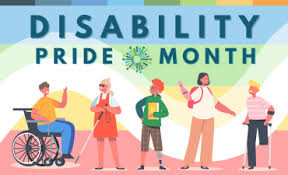Each July, Disability Pride Month offers an opportunity to recognize the achievements, history, and continued advocacy of the disability community. For job seekers and HR professionals alike, this month is more than just a celebration—it’s a call to action for building more inclusive workplaces and recognizing the diverse skill sets that drive success.
Inspired by insights from PowerToFly, this blog highlights why balancing technical and soft skills is key to career growth and inclusion—especially as we work toward creating more equitable environments for professionals of all abilities.

What Are Technical Skills—and Why Do They Matter?
Technical skills refer to the hard, job-specific abilities needed to complete certain tasks—like coding, data visualization, troubleshooting software, or using design tools. These skills are usually taught through formal training, certifications, or on-the-job experience.
- In the workplace: Technical skills help you perform your job accurately and efficiently, often forming the foundation of what hiring managers look for on a resume.
- Staying competitive: With technology evolving rapidly, it's crucial to keep learning. Online courses, micro-credentials, and industry workshops help professionals stay ahead of the curve.
Examples: A data analyst fluent in R or Python, or an IT technician troubleshooting complex network issues—both rely heavily on their technical expertise to perform and excel.
The Underrated Power of Soft Skills
Soft skills, by contrast, are interpersonal and emotional intelligence skills—like empathy, communication, adaptability, and teamwork. They shape how you interact, solve problems, and lead.
- In any role: These skills create stronger collaboration, better leadership, and a more inclusive culture. For HR professionals, they’re vital in understanding employee needs and cultivating belonging.
- How to grow them: Seek feedback, participate in team activities, or take on mentorship opportunities. Podcasts, books, and soft skill-focused workshops can also help.
Examples: Think of a team lead who communicates clearly and defuses conflict, or a support rep who listens empathetically and resolves issues with care—those are soft skills at work.
Why the Balance Matters
While technical skills land you the job, soft skills help you thrive within it. A well-rounded professional doesn’t just execute tasks—they connect, adapt, and lead effectively.
How to Build Both:
- Evaluate your current strengths: What comes naturally, and where are your gaps?
- Set SMART goals: For example, aim to complete a technical certification in 90 days and volunteer to lead a project to develop communication skills.
- Look for growth opportunities: Say yes to stretch assignments, networking events, or skill-building workshops—even the ones that feel a little uncomfortable.
How Disability Pride Month Ties In
Disability Pride Month reminds us that diverse teams are stronger teams. When we recognize and support individuals of all abilities, we create room for innovation, empathy, and true collaboration.
HR’s Role in Inclusion:
- Accommodate holistically: Go beyond compliance. Provide tools and flexibility that help employees with disabilities flourish.
- Foster visibility: Celebrate success stories, recognize contributions, and ensure professional development opportunities are accessible to everyone.
For Everyone:
- Get involved: Attend awareness events, support disability advocacy groups, or partner with organizations that amplify disabled voices.
- Lead by example: Embrace inclusive hiring practices, and help break down stereotypes about ability and potential.
For more insights on the importance of balancing technical and soft skills, check out this article on PowerToFly.
---
By celebrating Disability Pride Month and emphasizing the importance of both technical and soft skills, we can create a more inclusive and productive workplace. If you found this post helpful, feel free to share it with your network and join the conversation on how we can all contribute to a more inclusive society.
Searching jobs on Hourly Jobs Near Me
The team at HJ is constantly working on curating the best, most reliable and current job content on around the internet. Which means sometimes you may be redirected to another job board (Careerbuilder or ZipRecruiter for example) and other times you may be redirected to apply directly on the company's site from Hourly Jobs. This approach allows us to bring the most content to you in one place, but if you see something amiss or are looking for additional content we don't have yet, we want to know. You can contact us any time here.